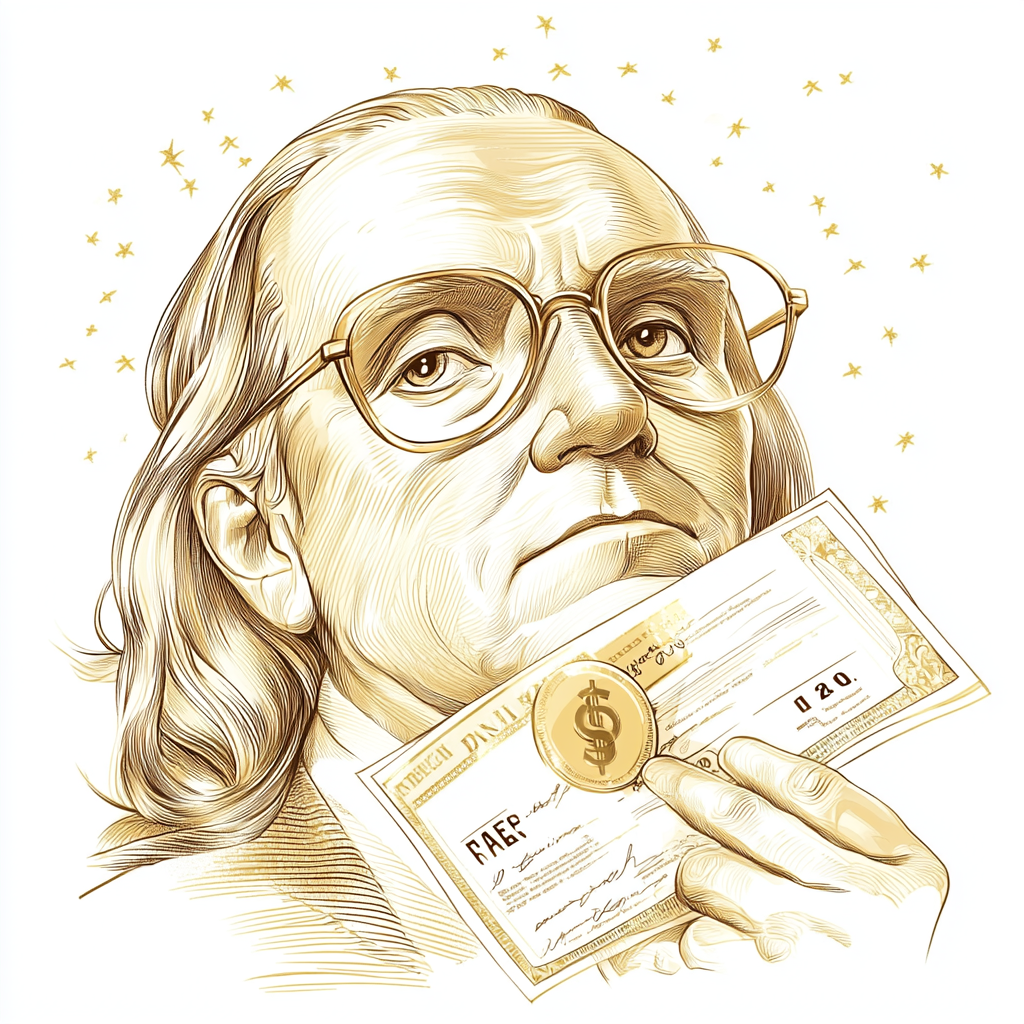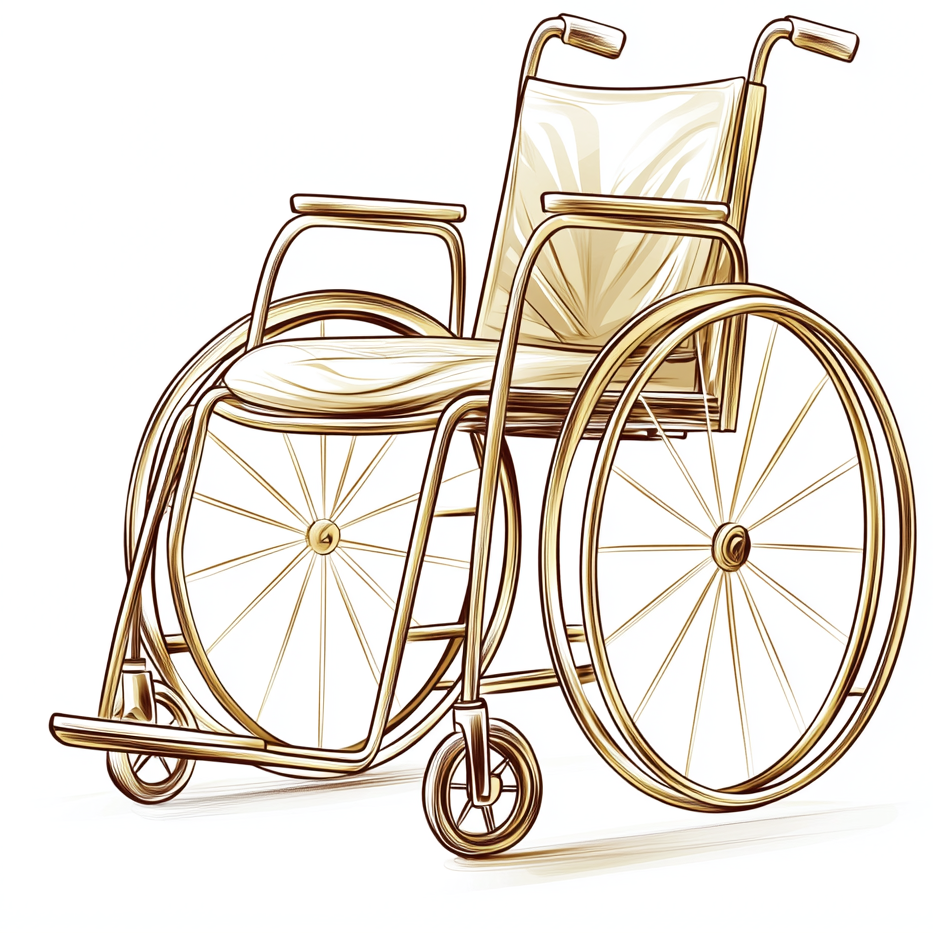< — Click play to listen to a deep dive podcast – like overview of this story. This summary is AI generated, and some elements may be not be accurate.

This week for Throwback Thursday, I’m revisiting a post that holds even more meaning now: “Beyond Get Used To It.” While you can certainly read or listen to this post on its own, I highly recommend checking it out first to get the full picture.
A lot has happened since then, and it feels important to share some updates that have reshaped my understanding of fairness and acceptance.
The IRS Refund Saga Continues
One month later, and the IRS still hasn’t sent our refund. No more “give us more time” letters, either. My husband even called, and they told him, “you haven’t done anything wrong.” If we haven’t done anything wrong, then why can’t we get our money?! Where are you on this one, Ben?! I thought you were on our side!
I decided to ask my buddy, Gemini, about Ben’s perspective on this. Initially, Gemini said Ben would question the issue, wondering if it was our fault. I found myself getting defensive, explaining all the details.
Good news! “Based on your responses, ‘Ben’ (representing Benjamin Franklin’s perspective) would likely shift from initial questioning to a position of strong agreement and advocacy for your situation.”
In short, “Ben” would conclude that you are a diligent citizen being unfairly treated by an inefficient system. He would be an ally, urging you to pursue justice with the same vigor and strategic thinking he applied to his own public endeavors.

I was so excited! Ben was on our side!
I eagerly shared this with my husband… who, it turns out, was not as thrilled. He’d looked up the status online, and nothing had changed. Though he did mention that after 45 days they have to pay us interest, and they only have 180 days to pay us, which brings us to August 14th.
See, even better! Well, in my head, at least. Not so much in his. “Then, they count the interest as income, so we have to pay taxes on it.” But, what about “Having gathered this information, ‘Ben’ would be firmly on your side.”
This felt like an endless cycle. “We have no power here,” he said. And it’s true. We really don’t. If they don’t pay us after 180 days, there’s nothing we can do. Another example of extraordinary unfairness.
There were subtle reminders to my MS path as well. You did nothing wrong, and there’s nothing more you can do. It’s oddly unsettling.
The Reprieve Atmosphere: A Change in Perspective
Originally, when I realized that high elevation was activating for MS symptoms, I was disappointed. The Pacific Northwest was some unreachable “gold standard.” Since then, Colorado hasn’t exactly been doing me any favors. July has been hot, which isn’t surprising, but the amount of rain we’ve had has been.
Things feel more complicated now. It’s been hot, yet I’ve been cold—full shaking and goosebumps cold. It doesn’t make sense, but it left me thinking: maybe leaving, or constantly searching for the “better” place, would be fruitless.
This realization was a lot more freeing than it might sound. I didn’t actually want to leave Colorado, as much as I enjoyed Seattle and Portland the few times I visited. So, it looks like I’ll be staying here. It might have been ambitious to have thought moving to a new state would magically make me feel better.
I have let go of that. I now feel it won’t, and I need to find a way to make today as good as it can be. Staying here, with my family, will do me more good than going to the “perfect” weather, that might not actually do anything anyway.
At my one-year neurologist appointment, I brought up the cold sensations. He just nodded his head.
It wasn’t the “it’s not MS” response I’d come to expect, but also nothing to suggest I could do anything about it. Then, our conversation escalated when I brought up a new treatment, assuming he’d tell me it was too aggressive. But he didn’t.

He then used a word I wasn’t thrilled about: progressive. He didn’t outright say that’s what’s happening to me, but he did his usual talking around it. “Sometimes people will have symptoms even without evidence on the scans.” Then, “That’s what they’ve been calling secondary progressive.”
Wait… what? Who are “they”? And does that mean what I have? Well, shit. Now what do I do?
And just like that, at the same appointment, he tells me he’s leaving, and I need to find a new neurologist. This, too, felt like another unfairness larger than I wanted to manage. I tried to avoid thinking about it at first, but that didn’t last long, as I should have expected.
After I was done with work for the day, I played some random music. It’s never random… I am starting to think I should do this once a week, and I encourage others to try it too.
Think about where you are, what you’re feeling or experiencing. Then, put your music on random. REALLY listen to the first 5 songs that come on, and consider how they tell you about what you’re feeling. Honestly, if you do it, please tell me how it is for you! It’s been really helpful for me.
Radical Acceptance
Radical Acceptance, at least as I’ve grown to understand it, seems to be one of the easiest DBT skills to explain. There’s no acronym to memorize, no specific activity to remember to do. Yet, even in its simplicity, it’s a very difficult skill to master.
As I sat down to write this reflection, I had to ask myself: how much am I truly accepting my reality? Especially as “my reality” feels more and more out of my control, and not something I expected or wanted?
I keep coming back to the messages I’ve received that I did nothing wrong, and I don’t deserve this. Truthfully, I don’t know what anyone “deserves” to feel this way, and I also feel the gut punch of unfairness.

My nine-year-old daughter said to me the other day, “MS makes me so sad for you. It should have been me.”
What do you even say to that? I knew she was showing me her love, which I gladly and wholeheartedly accepted. Not just when she’s being sweet. I accepted her love even when her ADHD medication was making her angry, and she was kicking me in frustration.
I felt an urge of protection at that moment. For her. I don’t want her to have these struggles. She has her own.
I wonder if this is a mini form of radical acceptance? Even if for a brief moment, I had accepted our journeys and struggles as ours.
Obviously, even if I could, I was not going to give this to my precious daughter. Yet there was a bit of me that had accepted that I carry this burden, and I will find a way to make it the best I can.
That is not to say I always feel that way. Trust me, I have “why me” moments too.
My sister and I went to an event called “How Psychic Are You.” I was excited to go. I was just going to bring my cane, and even thought about not bringing it.
We would be sitting. “I’ll be fine,” I thought.

She knew better. She suggested I bring my wheelchair. We had a birthday party for our niece later that day, and she reminded me I would need energy for that. Ugh. I knew she was right. But, I did fight it. Internally, of course. “This shouldn’t be this way,” “It’s unfair.”
I told her, “we are a good pair, sis!” Me in a wheelchair, her wearing a big brace on her arm because she had shoulder surgery recently. Poor thing. She was trying to help move me in my wheelchair, but she could only use one arm, and I am so weak. (Side note – “So weak,” makes me giggle from Uncle Roger videos…)
Being in a wheelchair and struggling with my sister, both of us with visible evidence of our struggles, reminded me how it almost felt that others didn’t see me as human while I was in the chair.
“Do you want me to push her?” they would ask my sister. I felt so small at that moment. Which, truthfully, is sad, because they were offering help! The leader of the event we went to said, “I don’t offer help to be nice, it’s because I think, ‘better you than me.’”
I need a moment to breathe after remembering that.
The first surge of energy is anger. I didn’t choose this, I don’t want it.
And, yet, after the last year of managing it, I am starting to recognize it is part of my journey. I can’t control how others view me, how much of my journey they want to know. I wish I could, because I don’t want that moment to define me in their eyes. Yet, at the same time, I know it doesn’t matter. Not to say they don’t matter, but in this context, they don’t.
My dad said to me once, probably when I was in middle school, “what others think of you is none of your business.” Haha.
Another wise comment from my dad that I didn’t take seriously at the time. This might be me practicing radical acceptance as well. They will think what they think, feel how they feel, and do what they do. It’s not my business. It’s out of my control, and not worth my effort to try to control it.
It reminds me of one of the biggest, potentially even most important, part of radical acceptance: I don’t have to like it.
In order to accept reality, we do not have to enjoy, like, or approve of reality. This does not even mean we cannot try to change it for the future.
First, we have to allow ourselves to see, and truly accept, reality as it is. When we release the “shoulds” from our interpretation, it frees up the space for growth and resilience to emerge.
Telling my story on Jewel and Ash has already been way more healing than I could have expected. You, reading it now, or listening to the AI podcast version, are a part of my MS journey. You’re helping me feel seen.
It’s the opposite of the inhuman, small feeling I have sometimes. So, thank you. Thank you for taking time out of your day to support me, hear my story, and send me your love.
However these stories land for you, I hope you give yourself the space to reflect and sit with that. Maybe even share them if it feels pertinent.

None of the words I write have ever been meant to cause harm. I had a conversation with my dad about this original post, and “life is unfair, get used to it.”
“Son, this world is rough
And if a man’s gonna make it, he’s gotta be tough…”
He said those words in an effort to help build my strength. He referenced Johnny Cash’s song “Boy Named Sue.”
Truthfully, I feel that I am pretty tough (at least sometimes.) No one can say how or why I am the way I am… but he did play a role. Maybe even those words played a part.
My new question to sit with is: How is ‘get used to it’ different from ‘radical acceptance,’ beyond their origins and when I heard them? I wonder if the core intention is the same, but it simply hit differently as a kid. I also wonder if ‘get used to it’ inherently limits the adjustments we might attempt.




